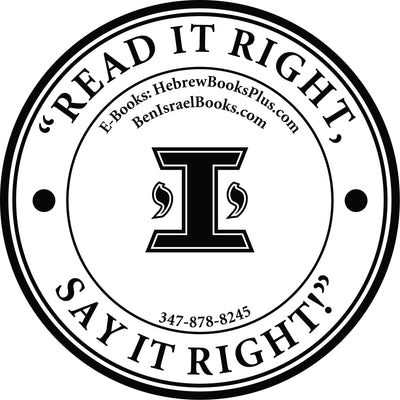Protection From Evil Eye in Hebrew - English Interlinear Transliteration and Translation
The evil eye is a curse believed to be cast by a malevolent glare, usually given to a person when they are unaware. Many cultures believe that receiving the evil eye will cause misfortune or injury. Talismans created to protect against the evil eye are also frequently called "evil eyes". The evil eye is mentioned several times in the classic Pirkei Avot (Ethics of Our Fathers). In Chapter II, five disciples of Rabbi Yochanan ben Zakai give advice on how to follow the good path in life and avoid the bad. Rabbi Eliezer says an evil eye is worse than a bad friend, a bad neighbor, or an evil heart. Judaism believes that a "good eye" designates an attitude of good will and kindness towards others. Someone who has this attitude in life will rejoice when his fellow man prospers; he will wish everyone well. Many Observant Jews avoid talking about valuable items they own, good luck that has come to them and, in particular, their children. If any of these are mentioned, the speaker and/or listener will say "b'li ayin hara" (Hebrew), meaning "without an evil eye". This book is geared for individuals who need to understand the text from Hebrew to English and pronouncing Hebrew words. The utilization of this booklet enables any person who does not understand Hebrew the proper concentration and meaning when they are praying. With the usage of this booklet hopefully people will be more successful in having their prayers answered. The text was developed in a way to produce a rhythmic flow, while allowing the reader to pronounce each letter, word and vowel with great ease in your native language.



